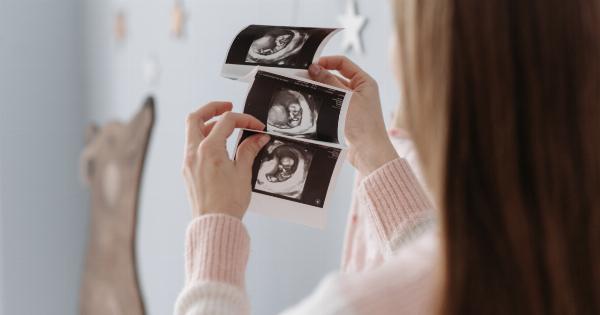There has always been a debate about whether maternal age affects a child’s longevity. Some studies suggest that children born to older mothers are more likely to live a longer life, while others indicate that it is not a significant factor.
This article aims to explore the various factors that affect longevity and the relationship between maternal age, health, and wellbeing.
The Science behind Longevity
Living a long and healthy life is a combination of various factors, including genetics, lifestyle choices, and environmental factors. Genetics play a crucial role in determining the maximum lifespan of an individual.
Studies have shown that genes contribute to about 30% of an individual’s lifespan. However, it is believed that lifestyle choices can significantly affect the other 70%.
Lifestyle choices such as diet, physical activity, smoking, and alcohol consumption all have a significant impact on an individual’s lifespan.
A healthy diet consisting of fruits, vegetables, whole grains, and lean protein can reduce the risk of chronic diseases such as diabetes, heart disease, and cancer. Regular physical activity can also lower the risk of developing chronic diseases, maintain a healthy weight, and improve mental health.
The Link between Maternal Age and Longevity
Several studies have suggested that maternal age at the time of giving birth can have an impact on a child’s lifespan.
A 2015 study published in the Journal of Gerontology found that children born to mothers aged 25-29 years had the longest lifespan, while those born to mothers aged 45 or older had the shortest lifespan. The study also found that maternal age was a more significant factor than paternal age in determining the child’s lifespan.
However, another study published in the Journal of Epidemiology and Community Health found that maternal age had no significant impact on children’s longevity, once other factors, such as lifestyle, socioeconomic status, and education, were taken into account. This suggests that factors other than maternal age play a more significant role in determining an individual’s lifespan.
The Impact of Modern Medicine on Maternal Age and Longevity
Advances in modern medicine have allowed women to have children at an older age than ever before.
In the past, women over the age of 35 were considered high-risk pregnancies, and the risk of complications, including miscarriage, stillbirth, and genetic abnormalities, was significant. However, with modern medical interventions such as IVF, women can now have children even in their 40s.
The impact of these medical interventions on maternal age and longevity is still being studied.
While women can have children at a later age than ever before, the long-term effects on the mother’s health and the child’s lifespan are still unknown. It is also essential to note that IVF is an expensive and invasive procedure that is not accessible to all women, and the risks and benefits must be carefully considered before making a decision.
The Importance of Healthy Lifestyle Choices for Longevity
While genetics and maternal age may play a role in determining an individual’s lifespan, lifestyle choices are crucial for maintaining a healthy and long life.
As mentioned earlier, a healthy diet and regular physical activity can significantly reduce the risk of developing chronic diseases and improve overall health and wellbeing.
It is never too late to make healthy lifestyle choices. Even small changes, such as drinking more water, getting enough sleep, and reducing stress, can have a significant impact on an individual’s health and lifespan.
Quitting smoking and reducing alcohol consumption can also improve health and reduce the risk of chronic diseases.
The Bottom Line
The link between maternal age and longevity is still debated among researchers.
While some studies suggest that maternal age can impact a child’s lifespan, other studies indicate that it is not a significant factor once other factors such as lifestyle and environment are considered. Regardless of maternal age, genetics, and environmental factors, lifestyle choices such as diet, physical activity, and stress management, are essential to maintaining a healthy and long life.



























